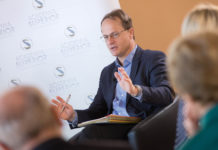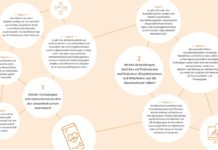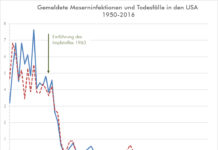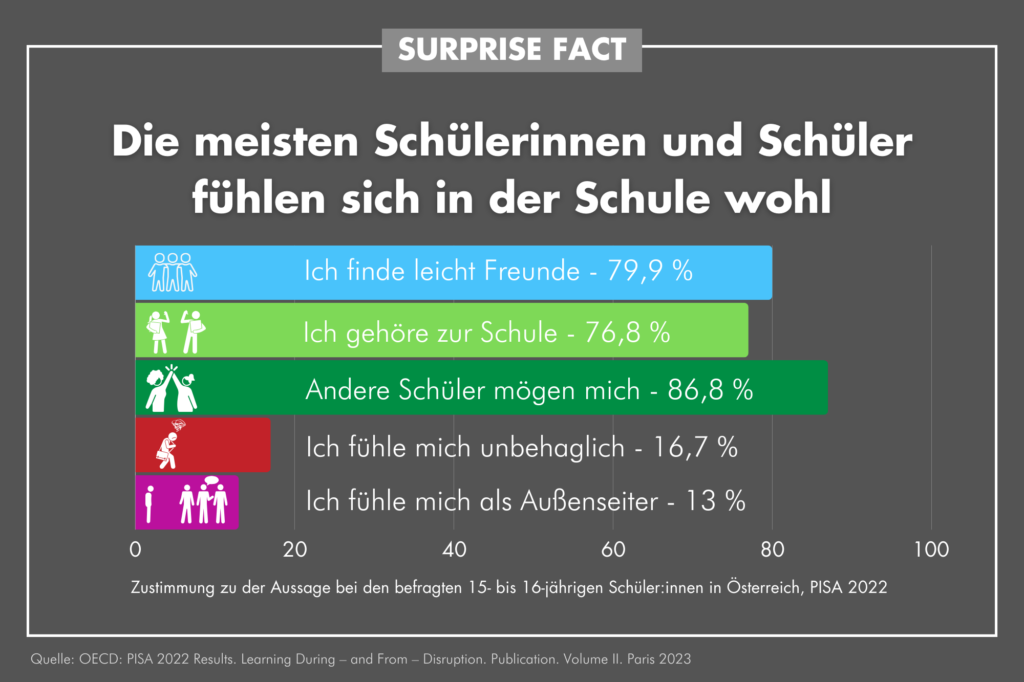In the south wing of the castle of Linz, more than 400 people interested in science experienced an ACADEMIA SUPERIOR DIALOGUE with the two top geneticists Univ.-Prof. Dr. Josef Penninger and Univ.-Prof. Dr. Markus Hengstschläger. Fascinating insights into gene research of the future, ethical questions on the limits of research, but also concrete ideas on how science could be better promoted in Austria were discussed.
Medicine is facing a new revolution
We are already in the midst of a great scientific-medical revolution: if it becomes possible to generate human stem cells — those cells from which all other cells arise — from normal human cells, then human tissues and organs can be grown from them. „This opens up completely new possibilities for research into diseases that in turn will lead to radically new therapies and medicines”, said Josef Penninger optimistically, stressing that this development would be a surprise factor for many people.
With Markus Penninger, the Scientific Director of the Institute for Molecular Biotechnology, IMBA, Markus Hengstschläger welcomed one of the world’s leading geneticists to the DIALOG in Linz. With around 200 employees at the IMBA in Vienna, Penninger operates pioneering genetic research. For example, in the fight against cancer or human self-healing powers: „I believe that our hearts have the potential to completely repair themselves, for example after a heart attack”, said Penninger, whose team has recently achieved initial successes in basic research in this direction with laboratory mice.
By researching the genetic mechanisms in mice — which are very similar to those of humans — Penninger began his studies in Canada in the nineties, where he quickly achieved success and was involved in the fundamental research on today’s possible treatment of many osteoporosis diseases. „Courage is the most important thing for a researcher, you have to move on unfamiliar paths and do crazy things, without knowing whether something comes out”, he replied to the question of Markus Hengstschläger after his secret recipe as a scientist.
Make local research world-class
Penninger’s Hengstschläger also wanted to know what politics can do to promote research: „I think it is the fundamental task of science to offer solutions to problems for politics and not to criticize them for what they can not or do not understand”, Penninger continued. „We need to build a high-tech playground where the world’s most talented children can feel comfortable and play. This gives us the best minds and the best ideas.” Above all, this requires more money, which should come especially from private individuals, who should be encouraged by tax advantages for donations or investments. For example, foundations could be required to invest one or two percent of their capital in research for which they could receive tax benefits, Penninger suggested.
In principle, however, the attitude of local scientists should also change: they should finally understand that they must present their work more in the media and communicate with the public, as has long been the case in the US or Canada, „Only in this way can you, as a researcher, pay attention to your work and thus not only gain money, but also arouse the interest of the youth in science”, explained Penninger.
Penninger is already innovating on the awakening of the passion for science in our youngest minds: a few years ago he founded the first open laboratory in Austria in Vienna. This is freely accessible to the public. Since then, 40,000 people have visited these and other open labs in Linz, Graz or Wels. „I am convinced that we have aroused interest in research with so many bright people”, he said.
The chairman of ACADEMIA SUPERIOR Michael Strugl was pleased not only with the renewed large number of visitors to the DIALOGUE, but also with the fact that „at DIALOG, the possibilities of genetic engineering were not only discussed against the background of threat scenarios, but also everything was shown to be positive would.”
Dr. Andreas Mitterlehner, General Director of HYPO Oberösterreich, which sponsored the event, said: „ACADEMIA SUPERIOR and HYPO OÖ have an important common interest: a good future development of Upper Austria. That’s why we support the activities of ACADEMIA SUPERIOR.”






